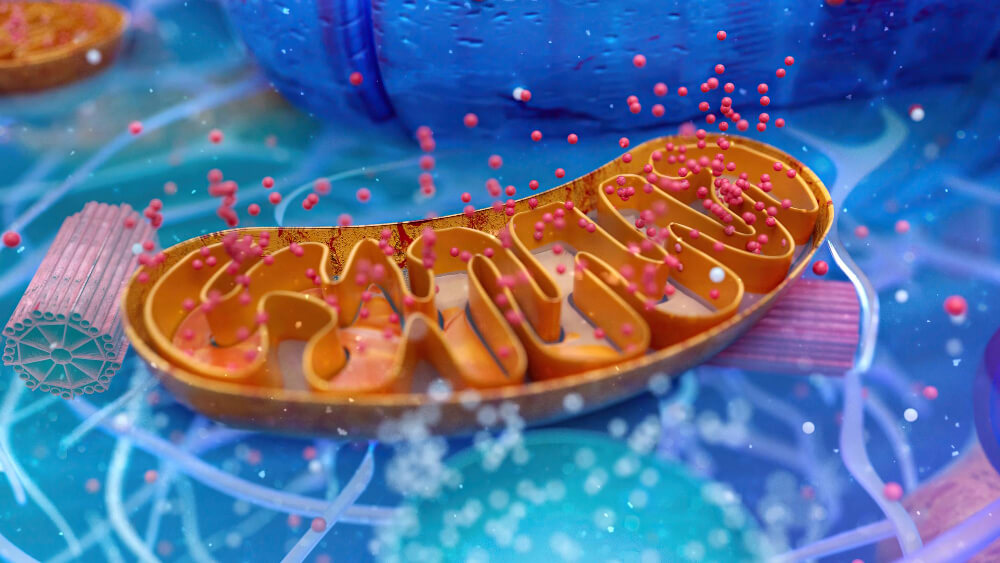5 Effective Dietary Strategies for Cancer Treatment Based on the MSCC Theory

Effective dietary strategies for cancer treatment can provide valuable insights into how nutrition influences cancer progression and treatment outcomes.
If you or a loved one is navigating the complexities of cancer, you might be wondering how diet can play a role in treatment.
In this article , we will be exploring the 5 effective dietary strategies for cancer treatment.
Let’s begin.
What is the Mitochondrial-Stem Cell Connection Theory?
At its core, the MSCC theory suggests that cancer can start from problems with our cells’ energy production—specifically, when stem cells experience chronic oxidative phosphorylation (OxPhos) insufficiency.
This fancy term essentially means that these cells aren’t getting enough energy from their mitochondria, which are like tiny power plants inside our cells.
When this energy production falters, it can lead to the creation of cancer stem cells (CSCs).
These CSCs are particularly tricky because they have the ability to self-renew and drive tumor growth.
Understanding this connection between mitochondrial function and cancer helps us see why targeting these processes could be key to effective treatment.
Key Concepts of the MSCC Theory
1. Oxidative Phosphorylation Insufficiency:
This is a mouthful, but it’s important.
When normal stem cells can’t produce enough energy through OxPhos, they may start relying on less efficient pathways, like glycolysis and glutaminolysis. This shift can help cancer cells survive and thrive.
2. Cancer Stem Cells (CSCs)
Think of these as the “troublemakers” of tumors. They’re responsible for starting new tumors and can often evade traditional treatments, making them a primary target for new therapies.
3. Metabolic Changes:
Cancer cells often change how they metabolize nutrients, taking in more glucose and glutamine to fuel their rapid growth.
This metabolic shift is essential to understand when considering dietary interventions.
4. Tumor Microenvironment:
The environment around tumors can become acidic and low in oxygen due to mitochondrial dysfunction.
This environment supports CSC survival and growth.
5 Effective Dietary Strategies for Cancer Treatment Based on the Mitochondrial-Stem Cell Connection
Here are some dietary strategies that might help in managing cancer by targeting those pesky CSCs and boosting mitochondrial function.
1. Fasting
Fasting isn’t just a trend; it has some serious potential benefits when it comes to cancer treatment.
Research suggests that fasting can enhance mitochondrial activity by increasing OxPhos efficiency while promoting autophagy—the body’s way of cleaning out damaged cells.
The benefits of Fasting includes:
● Boosts Mitochondrial Function:
Fasting encourages your body to create more mitochondria and improves how they work.
● Starves Cancer Cells:
By depriving your body of glucose, fasting can lead to the death of CSCs that depend heavily on sugar for energy.
● Encourages Autophagy:
This process helps your body get rid of dysfunctional mitochondria and other cellular debris, potentially slowing down tumor growth.
Some studies suggest that combining fasting with chemotherapy could enhance treatment effectiveness while protecting normal cells from damage.
2. Ketogenic Diet
Have you heard about the ketogenic diet?
It’s high in fats and low in carbohydrates, pushing your body into a state called ketosis where it relies on ketones for energy instead of glucose.
This shift has shown promise in slowing tumor growth and enhancing mitochondrial function.
How a Ketogenic Diet Works:
● Limits Sugar Intake: By cutting down on carbs, you limit glucose availability for cancer cells, effectively starving them.
● Restores Normal Cell Death: The ketogenic diet has been shown to help restore normal apoptosis (programmed cell death) in cancer cells while keeping healthy cells intact.
● Enhances OxPhos: Ketones provide an alternative energy source for healthy cells while depriving cancer cells of their primary fuel.
Many patients with aggressive cancers like glioblastoma have reported significant improvements when following a ketogenic diet alongside standard treatments.
3. Nutrient-Dense Foods
Incorporating specific nutrients into your diet can support mitochondrial health and combat oxidative stress—two critical factors in managing cancer progression.
The key nutrient in managing cancer include
● Vitamin C:
Known for its antioxidant properties, vitamin C has shown cytotoxic effects on various cancer cell lines and enhances mitochondrial function.
● Vitamin D:
This vitamin is crucial for regulating cellular metabolism and may reduce cancer mortality rates. Ensuring adequate vitamin D levels could improve outcomes during chemotherapy.
● Zinc:
Essential for maintaining healthy mitochondria, zinc protects against oxidative damage and has been shown to inhibit CSC-like properties in some cancers.
4. Anti-Inflammatory Foods
Chronic inflammation is a known contributor to cancer progression.
By adding anti-inflammatory foods to your diet, you can help mitigate this risk.
You should consider the following foods.
● Unsweetened Fruits and Vegetables:
Packed with antioxidants, these foods help reduce oxidative stress and inflammation.
● Fatty Fish:
Omega-3 fatty acids found in fish like salmon have anti-inflammatory properties that may inhibit tumor growth.
5. Avoiding Processed Foods
Processed foods often contain high levels of sugar, unhealthy fats, and additives that may promote inflammation and contribute to metabolic dysregulation.
Tips for Reducing Processed Foods:
● Cook at Home:
When you prepare your meals at home you can control ingredients and avoid harmful additives.
● Read Labels:
Be mindful of hidden sugars and unhealthy fats when purchasing packaged foods.
● Focus on Real Foods:
Prioritize proteins, healthy fat and vegetables.
Conclusion on Effective Dietary Strategies For Cancer Treatment
The Mitochondrial-Stem Cell Connection theory provides valuable insights into understanding how metabolic dysfunctions linked to stem cells contribute to cancer progression.
When you adopt targeted dietary strategies—like fasting, ketogenic diets, nutrient-dense foods, anti-inflammatory options, and minimizing processed foods—you may enhance your treatment outcomes while supporting overall health.
While dietary changes alone cannot replace conventional therapies such as chemotherapy or radiation, they can complement these treatments by targeting fundamental processes involved in cancer development.
As research continues to evolve in this area, integrating dietary guidelines into comprehensive cancer care may pave the way for more effective therapeutic strategies against this complex disease.
It’s important you combine consulting your health care provider and dietary guidelines.
Remember, every small change counts.

